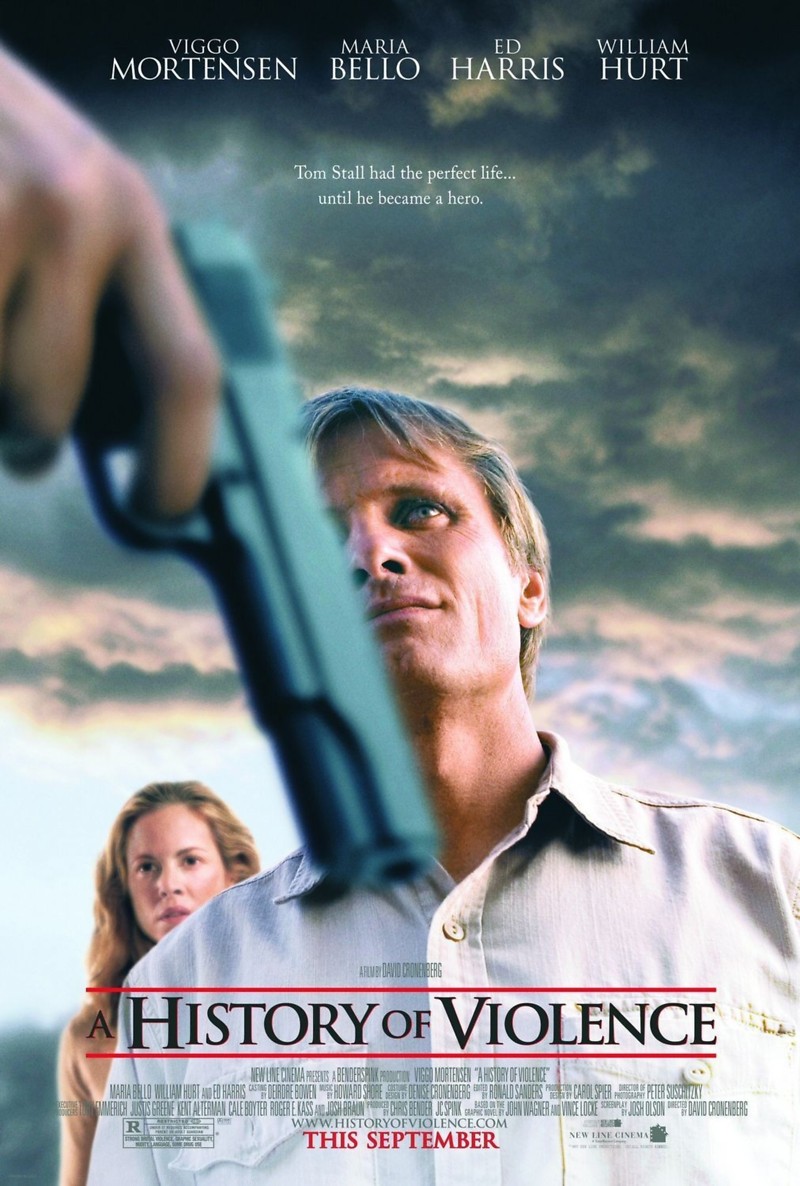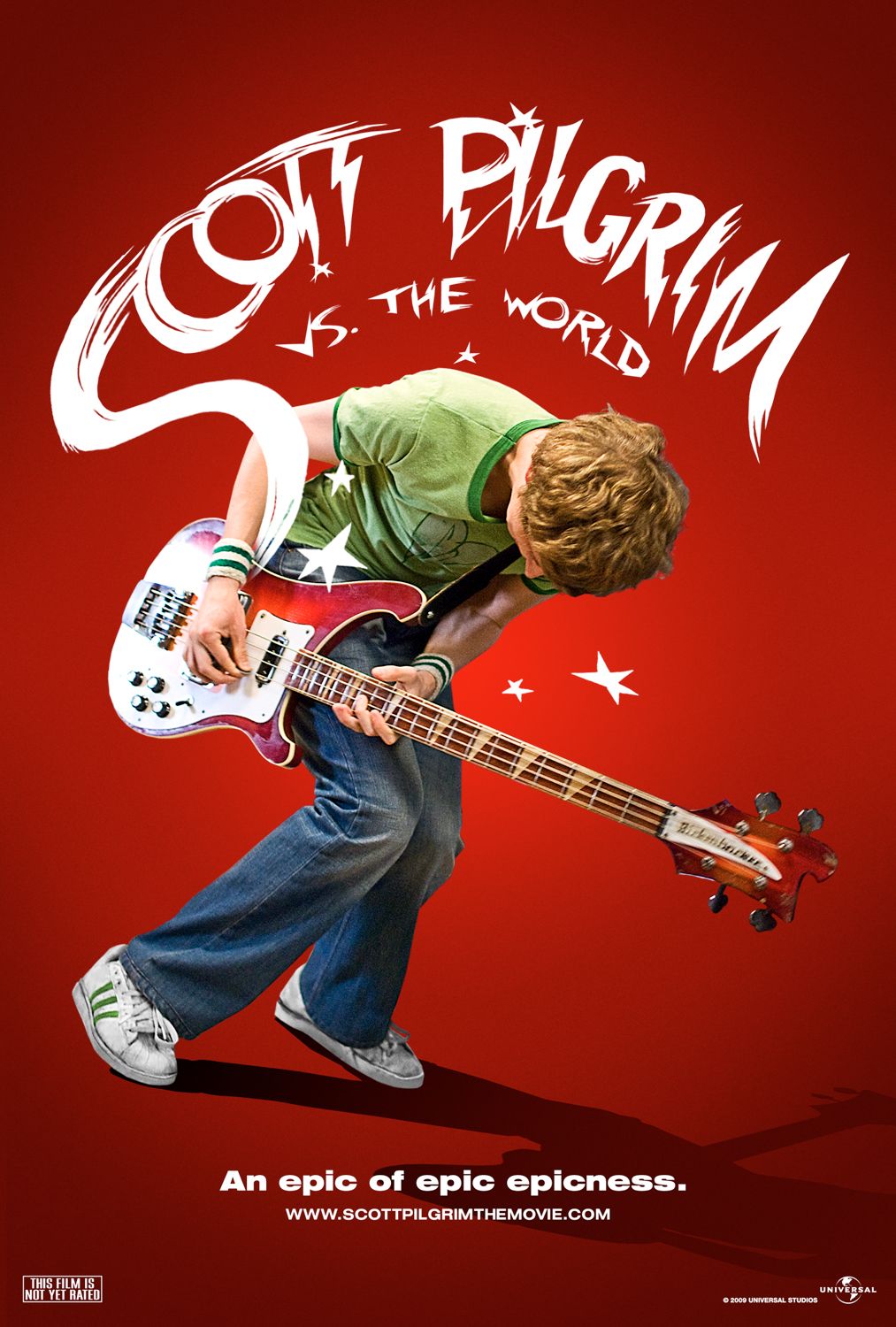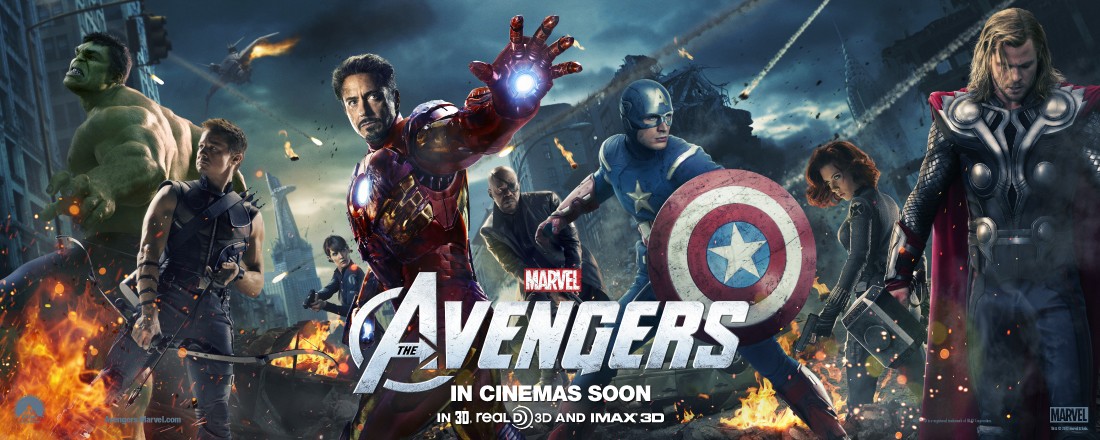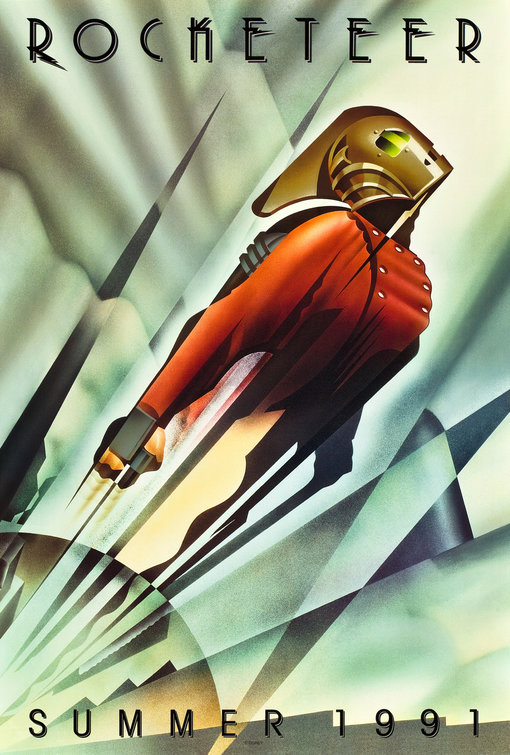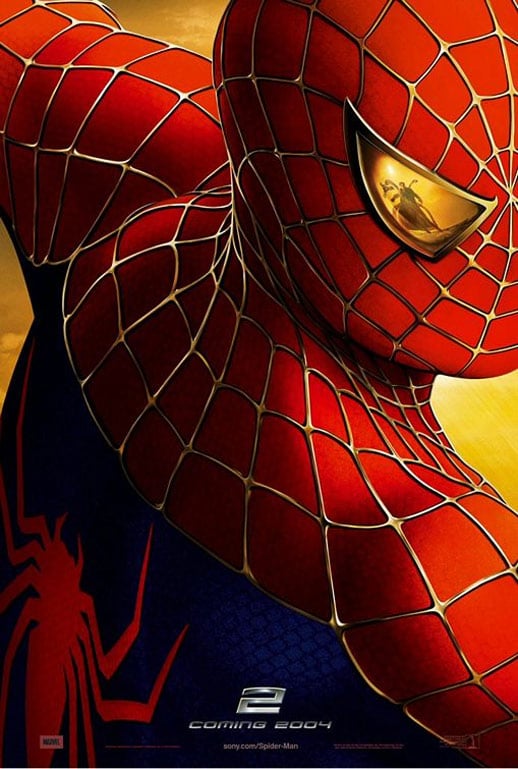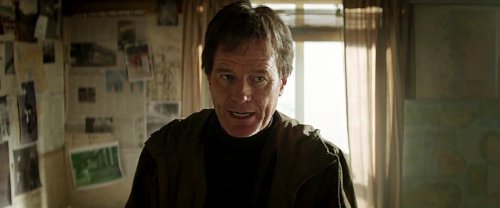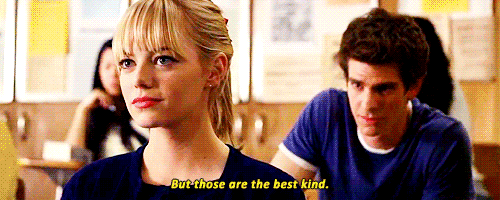S. Nerfherder Presents: The Top 10 Best Comic Book Movies of All Time
By Andrew Braid
Ever since the launch of the original X-Men in 2000, comic book movies have slowly but surely overtaken the pop culture landscape, breaking box office records and reshaping the whole industry as we know it. Now they're the safest bets Hollywood can make in a marketplace increasingly lacking in "safe bets". In conjunction with the opening of the latest instalment of the X-Men franchise, X-Men: Days of Future Past (which is awesome, BTW), I figured now's as good a time as any to take my own stab at narrowing down the cream of the ever-growing crop. Seeing just how many new movies seem to be pulling out the "best superhero movie ever" quote in their advertising (Days of Future Past included), I think it's about time to sort out which movies truly deserve such hyperbolic proclamations.
Before we begin, some notes/disclaimers:
-This list is strictly limited to live-action, theatrically-released films based on either a comic book series or graphic novel (animated comic book movies warrant their own Top 10 in the future- there's plenty of good ones to go around)
-While there is no "one movie per series" rule, I have tried to make the list somewhat diverse anyway (as awesome as Batman is, the list would look kinda boring if he took up half the spots).
-This list (of course) only covers films that have come out so far, and I will be more than happy to update this post in the future for any upcoming comic book movies that prove worthy of a spot.
-And finally, this is all just my own personal opinion. Feel free to let me know what your favourites are if you like (there's so many other good movies that didn't get a spot here- makes me feel guilty)
Leading into the list, here is my list of Honourable Mentions:
Superman II [The Richard Donner Cut] (1981)
Batman (1989, Dir. Tim Burton)
Batman Returns (1992, Dir. Tim Burton)
Ghost World (2001, Dir. Terry Zwigoff)
X2: X-Men United (2003, Dir. Bryan Singer)
Sin City (2005, Dir. Rober Rodriguez and Frank Miller)
Batman Begins (2005, Dir. Christopher Nolan)
V for Vendetta (2006, Dir. James McTeague)
Superman Returns (2006, Dir. Bryan Singer)
Hellboy II: The Golden Army (2008, Dir. Guillermo Del Toro)
Watchmen (2009, Dir. Zack Snyder)
X-Men: First Class (2011, Dir. Matthew Vaughn)
Captain America: The First Avenger (2011, Dir. Joe Johnston)
Iron Man 3 (2013, Dir. Shane Black)
X-Men: Days of Future Past (2014, Dir. Bryan Singer) [Seriously, it's awesome, go see it]
And now, the Top 10 Best Comic Book Movies of All Time, starting with...
#10: Captain America: The Winter Soldier
(2014, Directed by Joe Russo and Anthony Russo)
If there's one character in their stable that Marvel has proven they understand more than any other, it's Captain America. After a rollicking retro origin story in Captain America: The First Avenger, Winter Soldier shows Steve Rogers' struggle to adapt to the modern world- a man displaced from time, a veteran displaced from war, uncertain of what his duty as a soldier even means anymore. However, just as Phil Coulson said once, it turns out people just might need a little old-fashioned. Winter Soldier does damn near everything right, smoothly transitioning from the first film's period adventure into a paranoia-laden action-thriller where no one can seem to be trusted and security is valued over freedom. The pacing is perfect, knowing exactly how to juggle all its characters so no one feels superfluous or under-utilized. The humour is spot-on, keeping things fun despite the heavier subject matter without overtaking the film. The Winter Soldier himself is cold and imposing, showing an utter relentlessness akin to a Terminator. The action scenes are terrific, carrying a real sense of hard-hitting impact whether its fistfights, shootouts, or chases (the two big faceoffs between Cap and Winter Soldier in particular burst with a flurry of tension and intensity). The twists and ramifications for the future of the Marvel Studios universe moving forward are huge, and yet they don't distract from the film's ability to stand on its own. It's the current gold standard for Marvel's solo movies to date, positioning Captain America as the optimistic, hopeful, example-setting hero of the big screen in a time where the world could really use one (it helps that he doesn't destroy half of Metropolis in the process).
#9: A History of Violence
(2005, Directed by David Cronenberg)
Believe it or not, but this intense, powerful and surprisingly thoughtful thriller from David Cronenberg (
Videodrome,
Scanners,
The Fly) was actually an adaptation of a graphic novel published by DC Comics (through their "mature readers" Vertigo imprint). Viggo Mortensen gives one of his best performances here as Tom Stall, a small town restaurant owner and family man who may or may not have had a violent past as a gangster in Philadelphia. Tom denies these accusations from a scarred gangster (played by a memorable and chilling Ed Harris) to his wife and children, but as tensions rise it becomes apparent that there may be more to Tom than he's telling anyone, and that violence may just be in his nature no matter how hard he denies it. The film builds to a thrilling climax and perhaps one of the most perfect final scenes I've ever seen. A lot of you may not have seen it, so I'll avoid saying much more, but out of Cronenberg's huge body of work one could easily argue for this being the best film he's ever made.
#8: Scott Pilgrim vs. the World
(2010, Directed by Edgar Wright)
As we mourn the departure of Edgar Wright from Marvel's
Ant Man, we can at least console ourselves by watching his first stab at making a comic book movie, the near-perfect film adaptation of Bryan Lee O'Malley's
Scott Pilgrim series. While some changes and concessions have to be made to condense the six-volume comics series into a 2-hour film, the spirit (and even much of the hilarious dialogue) of the comics is preserved, yet also injected with some fresh material of its own (my favourite being
this bit, obviously). Michael Cera gives his best performance here, as his one-note "awkward nice guy" routine hides the jerkier aspects of Scott, making his rise to grow up and mature at the end all the more effective. He's surrounded by an amazing supporting cast, with Jason Schwartzman's "final boss" Gideon and Kieran Culkin as gay roommate Wallace in particular doing their best to steal the show. Filled with fantastic action scenes equally influenced by comic books, martial arts cinema and late 80s/early 90s gaming and paired with a killer soundtrack, this is a romantic comedy that's both riotously funny and surprisingly deep.
#7: Kick-Ass
(2010, Directed by Matthew Vaughn)
Whereas Scott Pilgrim vs. the World proves equal to its source material, Kick-Ass manages the amazing feat of surpassing it's source in nearly every way. Based on the first graphic novel in a trilogy by Mark Millar, Kick-Ass poses the question of what would happen if a geeky teenager in the real world decided to get himself a costume and become a superhero. The results spiral into a deliciously twisted blend of dark comedy, astute genre satire, kinetic and brutal action sequences, and even some surprisingly affecting drama. While the comics had most of these things too, it often pushed things too far and extreme (Hit-Girl snorting cocaine, anyone?), as if it was trying too hard to be shocking and provocative, and the series' gradually growing contempt for its protagonist causes many of the emotional beats to fall flat, particularly once the second book starts (why should I feel anything for this guy when I've just seen how much of a pathetic, unlikable asshole he is?). The film version works overtime to fix these issues, keeping the darkly funny and brutal tone of the book without seriously pushing it over the edge. More importantly though is how much more genuinely likable and endearing it makes its characters, whether it's Kick-Ass himself, the foul-mouthed fighter Hit-Girl, her ex-cop father Big Daddy (an offbeat, inspired and even bizarrely sweet Nicolas Cage performance), or the dorky and awkward would-be hero/villain Red Mist. Even the main villain, crime lord Frank D'Amico (still Mark Strong's best bad guy role to date), proves full of personality despite how dangerous and violent he is. Kick-Ass is a rare gem among comic book movies, a brilliantly entertaining action-comedy with a gleefully subversive bite.
#6: The Avengers
(2012, Directed by Joss Whedon)
Do I really need to explain why The Avengers is on here? The fact it's from geek god Joss Whedon alone ought to justify its place on this list, not to mention the fact that it's a goddamn Avengers movie. Believe all the "holy crap they did it, they really did it, they actually pulled this off" reactions from comic book geeks across the globe: The Avengers is the real deal, a big-scale, supremely fun and ever-so satisfying work of nerd nirvana. The simplicity of its plot is more than made up for by its stellar cast, whip-smart and witty Whedon dialogue and shamelessly enjoyable action scenes, all building up to a huge climax that has practically become a standard-setter for popcorn blockbusters to come. It's really that simple: if you're a comic book fan, the odds of you not loving this movie are statistically insignificant.
#5: The Dark Knight Rises
(2012, Directed by Christopher Nolan)
Well, I guess here's where it really gets into the whole "personal opinion" territory. Whereas some felt that The Dark Knight Rises was a disappointment (at least relative to sky-high expectations because did you even see the movie it has to follow up?), I absolutely loved it. The story feels huge and carefully structured, and we watch in anticipation as Nolan's many pieces fall into place. Michael Caine proves once and for all why he's the best Alfred ever, as we see the character truly pushed past his breaking point for the first time (and it's utterly heartbreaking to watch). Bane is an intimidating and brutishly intelligent foe, and Tom Hardy's performance brings him to imposing life despite the challenge of acting with most of his face obscured (plus there's that famous Bane voice- admit it, you love it, don't you?). Anne Hathaway really turns out to be the film's real MVP as Selina Kyle, finally giving us a live-action Catwoman who feels truly in line with her comics counterpart: playful, manipulative and toeing the line between good and bad whenever it benefits her most. The IMAX-scale climax set in the snowy streets of Gotham is astounding, an all-out war on the streets for the city's future that results in a satisfying and definitive conclusion to the story that started in Batman Begins. Rises cements Christopher Nolan's Dark Knight saga among the greatest trilogies in cinema history, a truly epic finale to a series that changed the film landscape forever.
#4: The Rocketeer
(1991, Directed by Joe Johnston)
Yeah, now we're getting into super "personal opinion" territory. While The Rocketeer has been steadily developing a cult fanbase since its initial release back in the early 90s, it's still often overlooked by many. But holy hell does that deserve to change: The Rocketeer is a ridiculously charming, old-school styled comic book action movie, filled with heart, humour and unabashed fun. The 1930s period detail is fantastic, the cast is great (including a stunning Jennifer Connelly, a reliably cantankerous Alan Arkin and a delightfully villainous Timothy Dalton), and the effects work is top-notch in an era where practical effects were still the main go-to. It completely commits to the tone and feel of retro adventure serials (imagine Indiana Jones crossed with a superhero movie), instilled with just the right amount of patriotic cheese. This is the kind of movie where the hired gangsters turn against the villains they've been working with once they find out they're Nazis, saying (and I honestly quote):
"I may not make an honest buck, but I'm 100% American."
Maybe it's just me, but it's hard not to love a movie with dialogue like that.
#3: Spider-Man 2
(2004, Directed by Sam Raimi)
The best of the original Sam Raimi trilogy and still easily the best Spider-Man movie to date,
Spider-Man 2 improves on the fondly-remembered original in every regard, and still stands as a textbook example for how to make a great sequel. Peter Parker's life is at its most crushing and conflicted here, making him feel all the more relatable while also letting Tobey Maguire give some of the best scenes of his career (the two standouts being his heartbreaking pay phone confessional and when he tells Aunt May the truth behind Uncle Ben's death). Alfred Molina's Doc Ock is the best villain of the series, equal parts sympathetic and slyly menacing. The effects work is a huge step up from the first film, whether its Spidey's web-swinging acrobatics or Doctor Octopus' mechanical arms with minds of their own. The action scenes step up their game in a big way, especially in the fantastic extended train setpiece. Best of all is Raimi's distinct sense of humour, where goofiness and the crushing unfairness of reality are firmly in sync at every turn (resulting in the
Best. Montage. Ever.) If you've ever wondered why so many people hate on
Spider-Man 3 (even though it's actually an alright movie overall), the answer's simple: it's because
this was the movie it had to follow up.
#2: Superman
(1978, Directed by Richard Donner)
While it's certainly not the first comic book movie ever made, the original
Superman really was the film that started it all, the film that set the template for how to make a big-budget comic book movie back when such a thing didn't exist. Even now the result of a massive gamble by producers Alexander and Ilya Salkind (at the time it was the most expensive film yet made) still holds up sublimely well, a soaring epic comic book yarn that delivers a truly definitive vision of the Superman mythos. It's like getting five movies in one (in a good way): across 2 1/2 hours you get a mythic comic book fantasy, a big-scale disaster movie, a hilarious screwball comedy, an emotional coming-of-age character drama and a winning romance backed by screen chemistry that ignites fireworks at every turn. The huge star-studded cast is sublime, led by Christopher Reeve's pitch-perfect performance as both bumbling Clark Kent and pure-hearted do-gooder Superman. And who can forget John Williams' iconic score, alternately majestic, sweeping and thrilling at every turn? No one can deny the
Superman Theme is still far and away the best anthem for any costumed hero who's ever graced the screen. When people say the old phrase "movie magic",
Superman is exactly the kind of film they're referring to- there aren't really any other superhero films out there that you could call downright enchanting.
#1: The Dark Knight
(2008, Directed by Christopher Nolan)
I know, I know, real original top pick, right? Then again, could it really be anything else? The Dark Knight was a game-changer, and for good reason: it proved that comic book movies could transcend their own genre without betraying their origins the process. It's a movie that, even though it's the middle chapter of a trilogy, works completely as a standalone story, a sprawling and complex crime saga that just happens to star Batman. Its themes are powerful, questioning the nature of justice and order and whether or not people are inherently good or trustworthy. The action scenes are incredible to this day, striking just the right balance between CG and practical effects that the film's vision of Gotham retains a sense of gritty realism. Heath Ledger's Oscar-winning performance as The Joker speaks for itself, a fully embodied and personified agent of chaos both darkly funny and outright terrifying. It is still the high benchmark for its genre, an influential masterpiece of modern Hollywood cinema that changed the landscape forever.
Also, the Bat-Bale voice is still hilarious/awesome. Admit it, you're doing it yourself right now, aren't you?
Thanks for reading, everyone! Tune in for new posts in the near-future!




